Copenhagen Climate Sound Series #3: Listening Underwater
Performance lecture by artist Jana Winderen (Norway), a livestream from aboard a Norwegian research vessel somewhere between Svalbard and Greenland from Michael Kjær (University of Copenhagen) and audio-visual artist John Grzinich and discussion with Holger Schulze (Sound Studies Lab, University of Copenhagen). Moderated by Kara Oehler (Institute for Climate Sound & Society).
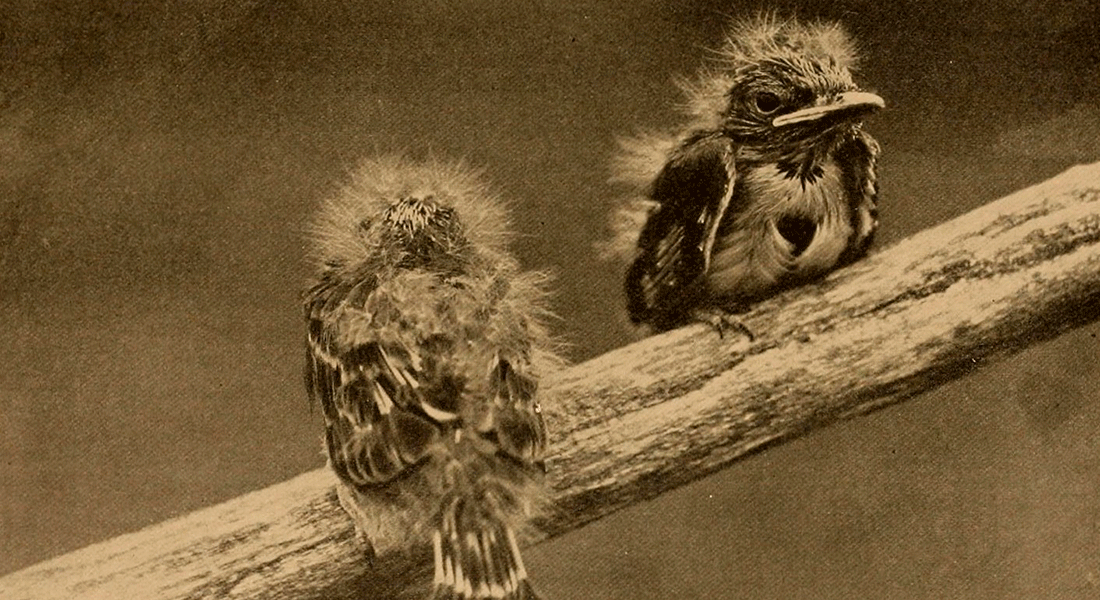
In our third event for the Copenhagen Climate Sound Series, we are very excited to host artist Jana Winderen. Jana will give a performance lecture about her work, where audience members will hear about her process, including the concept of “vertical listening” and experience a multi-speaker sound performance.
Winderen’s practice pays particular attention to audio environments and to creatures which are hard for humans to access, both physically and aurally – deep under water, inside ice or in frequency ranges inaudible to the human ear. She often records the hidden soundscapes of underwater ecosystems, amplifying them to draw attention to biodiversity and the urgent issues facing marine life. By making these sonic worlds audible, she often highlights how human activity—from engines to industry—interfere with the delicate communication networks of fish and other species. Most recently, Winderen is focused on deep water coral. While much is known about tropical coral reefs, which she describes as the rainforests of the sea, less is known about deep water coral reefs, their role in ocean health and what is at stake with practices like deep sea mining.
Following Jana’s performance, we will have a livestream from aboard a Norwegian research vessel somewhere between Svalbard and Greenland from art historian and KU Assistant Professor John Kjær and audio-visual artist John Grzinich. The two are traveling as part of a new project called “Extremes”.
The Extremes project aims to develop and disseminate a transformative interdisciplinary approach to studying Extreme Environments in the Arctic regions and beyond. Extreme Environments are places where conditions are very harsh and challenging for life, especially from a human standpoint. These areas can be incredibly hot, cold, deep underwater, or have high levels of chemicals that most living organisms would find toxic. Examples of Extreme Environments are cold seeps and hydrothermal vents, areas on the ocean floor where fluids and gases seep out of the Earth. The leading hypothesis of the project is that extreme environments like these present very potent opportunities to become exposed to geobiological forces, matter and milieus, that can actively redistribute the habitual and cognitive hierarchy of the human senses and their perceptions of the Earth. Hence, sensory encounters with extreme environments can potentially efface our inherited colonial and extractive geographical imaginaries and open us to earthly agencies anew. Such qualities are unfortunately mostly ignored by geocapital interests. Not only are environments like these sources of interest to current oil and gas industries, but they are also places of potential exposure to future practices of deep-sea mining. These extractive undertakings only stress the importance of exploring the extra-human significance of extreme environments.
Given the interdisciplinary nature of the Extremes project itself, Michael Kjær and John Grzinich are keen to foster dialogue to understand how scientific inquiry in this context contributes to broader contemporary environmental imaginaries in the wake of ongoing crisis. Offering access to artists allows a unique opportunity to broaden the research discourse through various modes of representation, interpretation and aesthetic encounters. While on board the Norwegian research vessel Kronprins Haakon we can offer a brief report of our activities and some current insights into this ongoing process.
The project is funded by UArctic and it is a collaboration between UiT The Arctic University of Norway (Department of Geosciences), the University of Copenhagen (Department of Arts and Cultural Studies) and the University of Iceland Research Centre in Þingeyjarsveit.
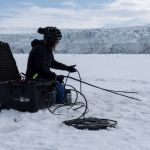
Jana Winderen
Jana Winderen is an artist based in Norway with a background in mathematics, chemistry and fish ecology. Her practice pays particular attention to audio environments and to creatures which are hard for humans to access, both physically and aurally – deep under water, inside ice or in frequency ranges inaudible to the human ear. Her activities include site-specific and spatial audio installations and concerts, which have been exhibited and performed internationally in major institutions and public spaces. Recent work includes The River at Jerwood Gallery, Natural History Museum, London, Absent Voices, Haus der Kunst, Munich, The Art of Listening: Underwater at Lenfest Center for the Arts, Colombia University, New York, Listening through the Dead Zones for IHME, Helsinki, The Art of Listening: Underwater for Audemar Piguet at Art Basel, Miami, Rising Tide at Kunstnernes Hus in Oslo, Listening with Carp for Now is the Time in Wuzhen, Through the Bones for Thailand Art Biennale in Krabi, bára for TBA21_Academy, Spring Bloom in the Marginal Ice Zone for Sonic Acts, Dive in Park Avenue Tunnel in New York and Ultrafield for MoMA, New York. In 2011 she won the Golden Nica at Ars Electronica for Digital Musics & Sound Art. She releases her audio-visual work on Touch (UK).
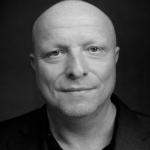
Holger Schulze
Holger Schulze is full professor in musicology at the University of Copenhagen and principal investigator at the Sound Studies Lab. He serves as co-editor of the international journal for historical anthropology Paragrana and as founding editor of the book series Sound Studies. He was associated investigator at the cluster of excellence Image Knowledge Gestaltung: an interdisciplinary laboratory at the Humboldt-Universität zu Berlin and founding member of the European Sound Studies Association. Between 2008-2016 he was director of the international research network Sound in Media Culture, and between 2000-2009 he was a co-founder and the first head of department of the new MA-programme in Sound Studies at the Universität der Künste Berlin. He was invited visiting professor at the Musashino Art University in Tokyo, at the University of New South Wales in Sydney, at the Leuphana Universität Lüneburg, and at the Humboldt-Universität zu Berlin. He served as a curator for the Haus der Kulturen der Welt Berlin, produced radio features for Deutschlandradio Kultur and he writes for Merkur, Seismograf, Neue Zeitschrift für Musik, Positionen, Texte zur Kunst, taz - die tageszeitung, der freitag. Portrait: „For Holger Schulze, immersive listening is his soundtrack to everyday life“ (2019) Interview: „So ist für Nutzer klar: Die Position der Dienstmagd hat eine Frau“ (DIE ZEIT 2019).
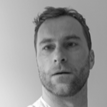 Michael Kjær
Michael Kjær
Michael Kjær, b. 1975, art historian, ph.d., is Assistant Professor at the Novo Nordisk Center for Practice-based Art Studies (PASS) at University of Copenhagen. His research focuses on understanding the possibilities for opening the human imagination towards nonhuman matter, agencies and scales. Currently he is, as leader of an aesthetic team, taking part in the cross-disciplinary Uarctic network Extremes. The aesthetic aim of the project is to develop new ways to sense, understand and imagine the significance of extreme marine environments in the Arctic regions and beyond. As a mediator of visual theory and art history, he has responsibility for developing concepts, artworks and best practices with the participating artists and marine researchers during marine research cruises in the Arctic Ocean.
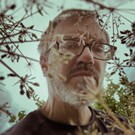 John Grzinich
John Grzinich
John Grzinich is an audio-visual artist based in Estonia. His work integrates sound, moving image and site-specific installations to explore perceptions of sound and space, seeking resonances between people and places. Grzinich’s recent focus questions our anthropocentric views through performative and fixed media works by combining earthly agencies, expanded listening practices and participatory engagement. Grzinich has performed and exhibited internationally, published compositions on various labels since the 1990s. His work has been featured on Deutschlandfunk Kultur, ABC Radio Australia, NTS Radio, Resonance FM, Radio Študent etc.
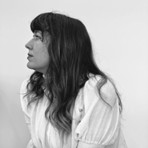 Kara Oehler
Kara Oehler
Kara Oehler is Director of the Institute for Climate Sound & Society (ICSS) and an artist-in-residence at Third Ear. Integrating climate and biodiversity journalism and policy with sound-based scientific researchers and artists from around the world, ICSS works in partnership with institutions such as metaLAB(at)Harvard and University of Copenhagen, media organizations such as Museum of the UN’s Sounds Right (Denmark) and Ours to Protect (Ireland). She is also an embedded journalist with the Behavioural Ecology Group at University of Copenhagen and is an active participant in interdisciplinary convenings such as the International Bioacoustics Congress (IBAC). Oehler’s work appears in The New York Times, RadioLab, The Atlantic, Morning Edition, the Center for Investigative Reporting, Museum of Modern Art NY and others and has been recognized by Peabody, Rockefeller United States Artists, Radcliffe Institute for Advanced Study and others. Oehler has led and/or co-founded multiple pioneering, interdisciplinary organizations, including the Institute for Climate Sound & Society, COVID Tracking Project at The Atlantic, metaLAB(at)Harvard, Zeega and UnionDocs Center for Documentary Art.
About the Copenhagen Climate Sound Series
We are very excited to announce a new partnership with Institute for Climate Sound & Society at metaLAB Harvard, whose founder and executive director Kara Oehler is now based in Copenhagen. Our initial project together is the Copenhagen Climate Sound Series, a three-part event sequence hosted by Oehler that brings together pathbreaking scholars and artists working with sound, which has taken on an increasingly crucial role as a medium and research tool for understanding the impacts of climate change, and also as a way for people to engage with and listen to the nonhuman world, expanding our relationship to nature.
Combining the potential of new technologies like passive acoustic monitoring and AI with centuries of Indigenous knowledge and decades of work in fields such as bioacoustics, ecoacoustics, and sound studies, sound is being used to monitor species, support conservation justice, and explore new arenas of human and nonhuman relations. The series will feature pathbreaking leaders across these fields, including Joycelyn Longdon, Jana Winderen and Elodie F. Briefer.
About The Institute for Climate Sound & Society
The Institute for Climate Sound & Society (ICSS) brings together sound-based practices entangled with the climate crisis, offering new ways to sonically gather, analyze and represent data to understand changing ecosystems and decenter humans in public culture. The Institute for Climate Sound & Society supports this growing community and is engaged in innovative research, publishing, and gatherings with the mission to advance new forms of knowledge and expand research impact. We are based in Copenhagen and at the metaLAB at Harvard University.
